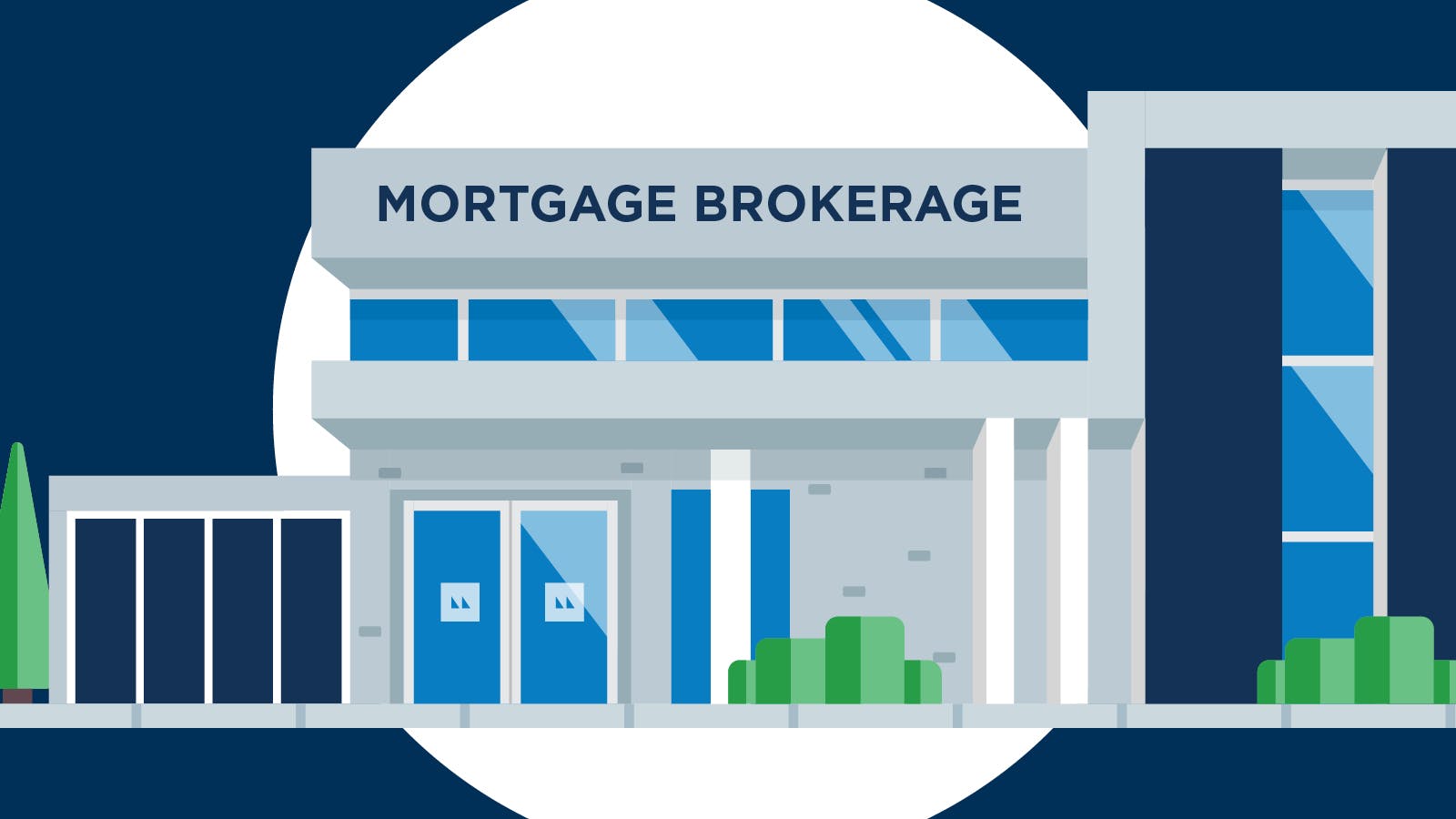Businesses are increasingly looking to joint ventures (JVs) in hopes of streamlining or adding services, boosting profits, sharing costs, and meeting other business goals.
The real estate industry is no exception – in the past few years, JVs have really taken off in popularity as real estate brokerages look for creative ways to grow and diversify their businesses.
But what exactly is a JV?
And why do you care?
Joint ventures explained: a primer in plain English
A joint venture is when two (or more) businesses partner together to accomplish a specific business goal. They agree to share both profits and losses, costs, resources, and whatever else makes sense.
For example, a foreign business might form a JV with a domestic one to help each business enter a new market.
Or an investor with capital but not a lot of expertise can partner with a business that is short on capital but long on skills and experience.
Typically, a JV is set up as its own entity. This newly created joint business can take on just about any structure: an LLC, a corporation, a partnership… whatever flavor works for the partners involved.
But a JV can also be as simple as a contract and a handshake.
Business size doesn’t matter. JVs can be formed between multi-national corporations and mom-and-pop shops, or between a traditional established brand and a scrappy, unknown startup.
Even the percentages are negotiable. The businesses can share equally in profits, costs, losses, and responsibilities, or, say, agree to an 80/20 profit split where one partner brings an established distribution network and the other contributes inventory.
Whatever the arrangement, the terms of what each business brings to the table (and takes away from it!) are typically set out in a joint venture agreement. It sets clear, written expectations and can be an essential reference point when/if the various businesses start butting heads.
Yes, it can be a pain to hammer all this out but think of it as an insurance policy against the JV going down in flames and taking your business with it.
The main difference between a joint venture and a legal partnership, a franchise, or any other business arrangement, is that each business continues to be its own, separate entity.
Aside from what is spelled out in the JV agreement, each business retains its separate name, branding, staff, assets, and identity.
In fact, a consumer may not even be aware that a joint venture exists between one business and another (which can potentially be a no-no, but more on that later.)
Okay, got the concept. How could it specifically benefit real estate?
Buying a home can be overwhelming, especially for a first-time buyer.
In addition to being the largest financial decision most folks will make in their lifetimes, a prospective homeowner has to deal with a whole lot of players:
- A real estate agent or company
- A mortgage lender, mortgage banker or mortgage brokerage
- A title company
- An inspection company
- An insurance broker
- Sometimes a mitigation company
- Or a real estate law firm (required in some states)…
The list seems to go on and on.
That is a ton of balls in the air for a buyer to juggle. Cue the stress!
And for you as a real estate company, those are a lot of potential failure points that could lead to frustration and bad feelings for your seller or buyer.
Worst case, it could even tank the reputation you’ve worked so hard to build.
Yikes!
One of the main reasons real estate companies turn to JVs is to help make this process less complicated, smoother, and happier for their clients.
It also offers more control over your customer’s experience.
For example, if a real estate agent is in a joint venture with a title company and something goes wrong with the title, the title company might be more willing to help move the process along so the buyer isn’t stuck waiting forever to close.
Or in the case of a joint venture with a mortgage professional, the mortgage pro may be more willing to jump through some extra hoops if it can help get a buyer approved for a loan.
These agreements can create a more integrated system — buyers and sellers may have a much more seamless and positive experience, and each partner has a better say in how that experience plays out.
JVs are also a way a real estate business can tap into new potential revenue streams, diversify, or expand their business without having to do all the startup work.
Your new JV partner can provide experienced staff, certifications and licenses, systems and processes, marketing/branding, a client base… all the things you would have to do from scratch to get a new business up and running.
Saving all that time and effort so you can continue to focus on your business goals? Yes, please!
In addition to sharing profits and costs, risk is also shared. Depending on the terms of the agreement, a JV can spread risk across both businesses and potentially reduce the chances of significant losses for each individual partner if things go sideways.
What about regulatory and compliance requirements? Yup, JVs can potentially help with those too. Avoiding legal problems… always a plus.
You can even potentially reduce your competition if you manage to talk a direct competitor into combining resources and moving forward as a joint venture.
Sounds like a total win to me! Sign me up!
Well…. maybe not so fast.
The Dark Side of joint ventures
JVs can have their potential downsides too.
What if the joint venture turns bad or ugly? Entering into a JV does involve some risk. If things take a walk on the nasty side, the chance that you will recover the time, effort, money, or resources you’ve already invested is slim to none.
You may find the business you’ve partnered with is more difficult to work with than you anticipated.
Or they aren’t holding up their end of the bargain.
Suddenly you’re spending your time trying to resolve disputes rather than serving your customers or growing your business.
Say one of the businesses in the JV starts to fail. You have little or no say in what they do and what happens going forward since they are still legally a separate and independent business.
You can also find yourself facing unexpected liabilities or legal troubles, even if they are entirely someone else’s fault. You know… that whole shared liability thing. Especially if you didn’t create a separate entity for your JV.
Yes, you may be entitled to some of their income.
The flip side is: they may also be entitled to some of yours. If you are thriving and they are struggling, that balance may start to feel very out of whack very quickly.
Remember what we said about creating a more seamless and positive customer experience? That’s definitely the goal and awesome when it works, but you may not have a lot of control over who the other JV business(es) hire.
You also have no control over their business culture. What if they value profits above everything else, including great customer service?
The sale of any assets that aren’t specifically set out in the joint venture agreement?
Nope. No control over those either.
Enter the regulators
On top of all of those other potential risks…
Joint ventures have recently come under increasing scrutiny by government regulators.
Specifically, real estate JVs.
“In February 2023, law firm McGuireWoods released a white paper claiming that the joint venture business model between title insurance firms and real estate brokerages ‘drives up costs, stifles competition’ and violates the 1974 Real Estate Settlement Procedures Act (RESPA) and the 2010 Consumer Financial Protection Act (CFPA).” (HousingWire)
Um… that can’t be good.
RESPA
RESPA’s sections 8(a) and (b) specifically prohibit the payment or receipt of things like kickbacks and referral fees or the splitting of unearned fees when it comes to real estate settlement services.
Kind of sounds like agreeing to share profits between a real estate broker and a settlement company, right?
However, RESPA also has a section 8(c), commonly called the “safe harbor provision”, that spells out when this kind of thing IS legally okay.
To be protected under safe harbor, the real estate business arrangement has to meet three criteria:
- The arrangement between businesses must be disclosed to the consumer, and an estimate or range of charges must be provided.
- Consumers must not be required to use the services of the affiliated business.
- The only thing of value that is received is a return on the ownership interest.
The problem mostly lies in this third criterion. The argument is that JVs don’t meet this requirement and therefore do not qualify for the safe harbor exception.
When a residential real estate joint venture is set up, neither the real estate agents nor the settlement business contributes much (if any) capital to the arrangement.
Yet they may receive a share of each other’s profits that are “wildly disproportionate” to the actual investments they made in the joint venture.
Some states also have their own laws that may prohibit kickbacks, referral fees or the splitting of fees but they don’t make any safe harbor exceptions at all.
You’re a lawful joint venture under federal law? Sorry! Even the referral fees allowed by RESPA could be illegal in those jurisdictions.
CFPA
The Consumer Financial Protection Act (CFPA) primarily focuses on protecting consumers from unfair, deceptive, or abusive practices in the financial industry.
Since real estate transactions include financial pieces like mortgage loans and title insurance, they also fall under CFPA’s rules and protections.
If a business or JV fails to make the required disclosures to consumers, doesn’t follow the anti-kickback rules (similar to RESPA) or ignores any other mandates, they can find themselves in very hot water.
Other no-nos are anything that is considered unfair to consumers, including manipulating terms and conditions to put the innocent consumer at a disadvantage.
Let’s face it — real estate brokers and settlement businesses know a heck of a lot more about the industry and its rules than the buyers do. Buyers are often overwhelmed by the process in the first place, and inclined to just trust what their agents say.
And the majority of agents are deserving of that trust.
CFPA is designed to protect the consumer from the bad apples.
Like the dishonest folks who, for example, steer their customers to a higher priced settlement company (possibly as part of a JV) so they can receive a higher referral fee or commission.
Why now?
Marx Sterbcow, a RESPA attorney, says “The environment that we are in right now is probably the most enforcement heavy that I’ve seen in probably 20 years certainly on the state side. There are companies that really do things by the book – they are uber compliant.… But then you have a competitor in the marketplace that is doing everything completely illegal.” (HousingWire)
Both consumers and agents continue to battle with high prices, interest rates, rising closing costs, and increased property taxes and homeowners insurance rates.
Add a housing market slowdown to the mix, and people start panicking over potentially decreasing revenues.
Sterbcow goes on to say “… they start putting together all sorts of crazy, cockamamie schemes to facilitate business coming in and that delegitimizes and impacts the market.”
2017 to 2023 also saw a slowdown in enforcement of RESPA and CFPA rules by federal regulators and gave many real estate and settlement company professionals the impression that RESPA and CFPA compliance was no longer so important.
So they figured that a little “creativity” in how they did business was no big deal. Making more money is good, right?
Grey-area JVs started popping up, including sham JVs that existed just to give kickbacks to agents. Questionable business practices became more and more common.
And regulators started to pay attention.
“But”, you say, “I am a legitimate businessperson and would follow all the rules and laws!”
Awesome! But unfortunately, a regulator doesn’t know that until they do a deep dive into your business practices.
This could potentially cost you time, money, and a truckload of Advil.
Not my problem?
Looking at forming a JV but feel that you’re safe because you aren’t interested in partnering with a title firm?
Not necessarily.
RESPA’s ban on referral fees, splitting of unearned fees and kickbacks apply equally to all settlement service providers, not just title companies. According to the National Association of Realtors (NAR):
“A settlement service includes any service provided in connection with a real estate settlement including, but not limited to, title searches, title examinations, the provision of title certificates, title insurance, services rendered by an attorney, the preparation of documents, property surveys, the rendering of credit reports or appraisals, pest and fungus inspections, home warranty companies, services rendered by a real estate professional, the origination of a federally related mortgage loan, and the handling of the processing and closing or settlement.”
Yes, even loan originators are included in this list.
And particularly subject to CFPA laws because they deal in federal financial transactions.
Yes, Virginia, there is another choice

Do the potential pitfalls of a JV and the thought of regulators breathing down your neck make you a little queasy?
Thankfully, there is a potential alternative that can provide many of the perceived same benefits without so many of the potential drawbacks….
Franchising.
Yes, franchising typically costs more money up front than creating a JV with an existing business.
But for that investment, you typically get a turnkey solution (like Motto Mortgage’s Brokerage-In-A-Box) with support from the franchisor, technology, compliance help… just about everything you need to get your new business expansion up and running.
And just like with a JV, you can hit the ground running with established brand recognition, marketing plans and tools, and a more seamless customer experience.
You still don’t have to start from scratch, but you can steer clear of possible legal tangles.
What you DON’T get are:
- clashes between cultures
- limited loan options
- loss of some of your income
- loss of power over your reputation
- potentially competing business goals
- restricted salable assets
The big difference between a JV and a franchise comes down to control.
With a JV, while you share things like assets and profits, each business in the JV retains control over their own business decisions. While you get to keep control over your business, you have little to no control over the other business(es) in your joint venture.
With a franchise, you own the business. You make the hiring decisions. You set the roadmap and the culture.
You are in the driver’s seat.
And, best of all, there is less reason for regulators to come sniffing around.
0% grey areas, 100% legal.
Only you can make the right decisions for your business – no one knows its ins and outs the way you do.
Maybe a JV is the right path forward for you and your business goals.
Maybe it isn’t.
If the possibility of bumping up against legal compliance issues and regulation enforcement gives you the willies, know that you may have alternative options.
Good ones!
And you can take that to the bank.
Published on December 11, 2023


